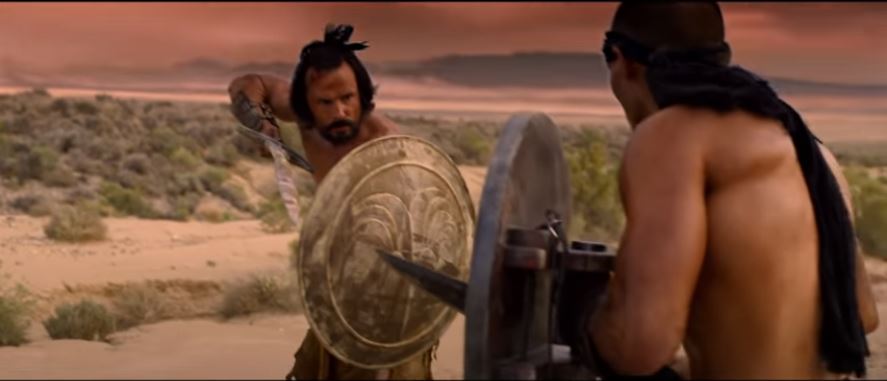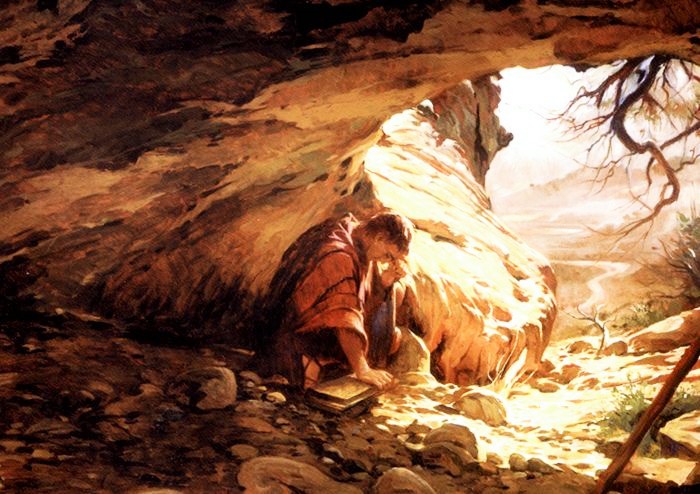To accompany your Come Follow Me study for the week of November 25 to December 1
In addition to reading Ether 12-15, you may wish to see the following related videos:
You may also wish to consult the related commentary in the Institute of Religion Book of Mormon Student Manual at
If you would like a Kahoot game related to this material which you could use for personal study or use with your family or your class, click here: https://create.kahoot.it/share/ether-12-15/030548eb-cc59-4858-9b20-daf6c55cd12c. To use it with a group, after clicking on this link, you will need to log into Kahoot, creating a free account if you have not done so previously, then click on the blue “Host Live” button or the gray “Assign” button, depending on how you wish to use the Kahoot. Some of the Kahoot questions may presuppose that the player has read through the suggested answers to the following Points to Ponder and at least has browsed the Institute student manual as well.
Mormon frequently wrote “and thus we see” to highlight some moral that he wanted his readers to see in his writings. Now it’s your turn. For each listed passage, indicate in your own words the principle or moral that you believe Moroni wanted us to learn from reading Ether and give a modern application of that principle.

1. 12:2-3
2. 12:4
3. 12:6, 12
4. 12:24
5. 12:26-27
6. 12:30
7. 12:36-37
8. 12:38-41
9. 13:2-10
10. 13:13
11. 13:20
12. 15:17-19
13. 15:33
14. 15:34
Possible Answers to Points to Ponder in Ether 12-15
Mormon frequently wrote “and thus we see” to highlight some moral that he wanted his readers to see in his writings. Now it’s your turn. For each listed passage, indicate in your own words the principle or moral that you believe Moroni wanted us to learn from reading Ether and give a modern application of that principle.
1. 12:2-3
When we are full of the Spirit of the Lord, we feel like working hard all day long in the Lord’s work.
2. 12:4
Faith leads to hope and an assurance of a better life hereafter, which can make us sure and steadfast, always abounding in good works.
3. 12:6, 12
We receive no witness until after the trial of our faith. For example, there will never seem to be enough money for tithing until after we pay it, and we’ll never think we can succeed at a new calling in the Church until we accept it and give it a try. For further commentary on this principle, see my post at https://latterdaysaintandhappy.com/god-says-after-you-first-shall-be-first/
4. 12:24
It’s not enough to be a great leader, speaker, or administrator. We have to be full of love, or all of that is in vain.
5. 12:26-27
If we humble ourselves and turn to the Lord, our weaknesses can become our strengths. For some examples from the life of President Heber J. Grant, see https://speeches.byu.edu/talks/michael-d-barnes/finding-strength-christ/.
6. 12:30
Through faith we can move mountains—both figuratively and literally, if occasion requires.
7. 12:36-37
We need to be steadfast in spite of what others think of us, in which case we’ll find our weaknesses made strong and will be able to be exalted.
8. 12:38-41
It is possible to see the Savior even in this life, and we should seek Him in the most literal sense of the word, through righteous living.
9. 13:2-10
If we serve the Lord, this land will be a land of promise to us and in this life or the next we can reside in the New Jerusalem, which will be built upon this continent.
10. 13:13
Some things are too sacred to be written—or spoken.
11. 13:20
The Lord patiently bends over backwards to give His children every opportunity to repent before giving up on them.
12. 15:17-19
Through persistent sin, one can totally lose the Spirit of the Lord, lose the desire to repent, and reach the point of being in a perpetual homicidal rage.
13. 15:33
Whatever the Lord has promised will literally come to pass.
14. 15:34
It doesn’t matter if we live or die, but it matters very much how we live while we are here.
